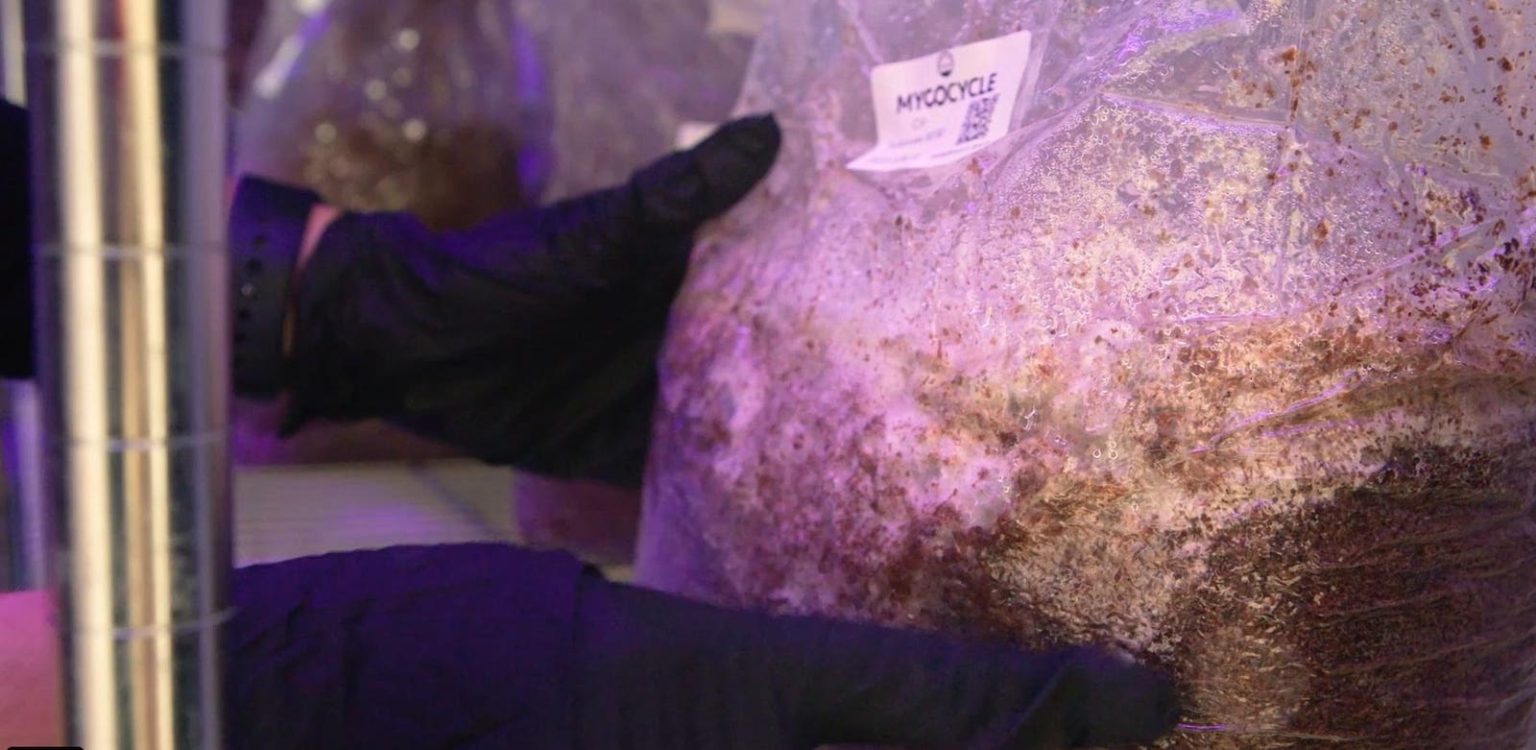Chicago-based science tech company, Mycocycle, is making waves in waste management by training fungi to break down and detoxify demolition and construction materials. With a recent oversubscribed round of $3.6 million, Mycocycle has raised a total of $7.3 million, including investors from Closed Loop Partners’ Ventures Group, TELUS Pollinator Fund for Good, US Venture, Inc., and the Illinois Department of Commerce and Economic Opportunity INVENT Fund. CEO Joanne Rodriguez believes fungi are natural cleaners and builders, providing the perfect solution for managing waste in a sustainable way.
Rodriguez’s inspiration for Mycocycle stemmed from the realization of the difficulties in recycling roofing materials, with less than four percent being recycled. After taking a course in permaculture design and learning about the power of fungi, she combined old shingles with fungal spores to create a patent and start Mycocycle. The company’s bioremediation process involves treating built-environment waste like asphalt shingles and rubber, transforming it into non-toxic, high-quality raw materials. By diverting construction debris from landfills, Mycocycle aims to decarbonize the market responsible for a significant portion of the US’s annual greenhouse gas emissions.
Using fungi as a tech solution, Mycocycle breaks down waste materials and produces harvestable raw materials for products such as industrial fillers, fibers, or foams. The process mimics how fungi operate in nature, creating the optimal environment for mycelium to thrive and decompose waste materials. Customers can use mobile bioprocessors called MYCOntainers on construction sites to treat waste effectively and sustainably. With construction materials manufacturing contributing to 11 percent of global greenhouse gas emissions, Mycocycle’s solution offers a promising step towards a circular waste-to-value system in the industry.
Students like Yizhen Zhang and Zaynab Abbas from Plano West High School are exploring the potential of mycology in scientific projects, focusing on decomposing harmful pollutants and repurposing agricultural waste using fungi. Their projects have been recognized at science fairs, highlighting the innovative applications of mycology in environmental clean-up and nutrition enhancement. Alongside classmates Raina Hassan and Jerusha Abraham, they aim to raise awareness about the benefits of mycology and inspire younger generations to pursue careers in this field, unlocking further possibilities for using fungi to combat pollution, climate change, and health issues.
By tapping into the extensive and relatively unexplored capabilities of fungi, Mycocycle envisions a future where mycology plays a crucial role in addressing various challenges in healthcare, agriculture, and biotechnology. The company’s goal extends beyond construction and industrial waste treatment, with a focus on developing biobased solutions for other waste issues like textiles. By embracing nature’s solutions to man-made problems, Mycocycle is not only decarbonizing the construction supply chain but also fostering innovation and sustainability in waste management practices.
Joanne Rodriguez believes that the potential of mycology is vast and still largely untapped, offering endless opportunities for advancements in healthcare, agriculture, consumer packaged goods, and biotechnology. As Mycocycle continues to evolve and expand its platform, the company aims to inspire others to explore the diverse applications of fungi in creating sustainable solutions for the future. With a growing recognition of fungi’s versatility and potential benefits, Mycology is poised to revolutionize various industries and contribute to a more sustainable and environmentally conscious world.













